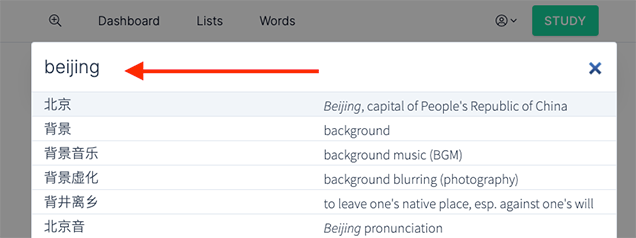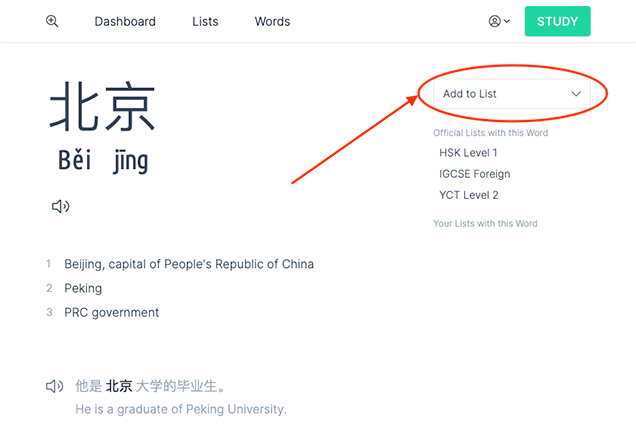
Reading is an important skill that you need to develop as you learn Chinese. The key difficulty of reading in Chinese is that—unlike reading in other languages that have alphabets—in Mandarin, reading comes down to memorizing and recognizing thousands of different characters. In this article, we’ll explain how to improve your Mandarin reading skill through two reading strategies.
These strategies are called extensive reading and intensive reading. With extensive reading you read a lot of long texts that you can easily understand. With intensive reading you read a smaller amount of content which is more difficult than your current level of language comprehension. The two methods are like two sides of the same coin, and you should practice both methods in your Mandarin study program.
Extensive Mandarin Reading
When you practice extensive reading, the goal is to read many different long texts that are easy for you to understand. This is about exposing you to the language in many different contexts to help you read faster and more fluently.
When it comes to finding material for extensive reading, you’re encouraged to find texts on your own that you actually want to read. You can read the news on whatever topics interest you. You could also read novels, comics, or blogs. What matters here is that you read texts that are very easy for you, in addition to being interesting.
Fun content makes extensive Mandarin reading more enjoyable and entertaining, and this enjoyment factor makes it easy to stay interested and motivated. It shows you how the language is used to talk about topics you already like reading about. Once you’ve practiced extensive reading enough, you might find yourself reading in Chinese for fun and not thinking much of it.
Your Chinese reading skills will benefit nonetheless. You’ll expose yourself to Chinese as it’s used in real world situations. When you see words you’ve already learned used in different ways, you’ll reinforce your understanding of them. By reading widely, you also expose yourself to more vocabulary and grammar patterns that you can learn in context.
Tips for extensive reading
For best results with extensive reading, you should try to find sources in which you understand 98% of the content. This rate helps you learn new words through context clues without making the reading feel burdensome. You’ll also be able to cover more ground since you won’t have to stop to look up words in a dictionary as often.
Finding extensive reading materials in Chinese can be difficult because it takes a long time for Chinese learners to understand 98% of the words in readily available sources like newspapers. It takes even longer to be able to read novels.
Nevertheless, Chinese learners should still practice extensive reading. You just need to have enough material. When you’re a beginner, graded readers can help you find texts at appropriate difficulty levels. Once you’re at an advanced level and can easily find content that’s appropriate for you, you can just make it a regular, fun thing to do.
Finally, combine extensive reading with intensive reading. When you’re reading extensively, you’ll pass over words and phrases you don’t understand. That’s not a bad thing—in extensive reading, reading faster is actually the point.
But when it comes time to get into the nitty-gritty details of grammar, vocabulary, and in-depth reading comprehension skills, intensive reading is better for the job. In extensive reading, you don’t take the extra time to examine and analyze what you’re reading like you do in intensive reading.
Intensive Mandarin Reading
In intensive reading, you concentrate on getting into the fine details of one short, difficult text. This is what you do when you read short passages from Chinese textbooks and then go over grammar points, vocabulary, and comprehension questions related to what you’ve just read.
Intensive reading will make sure you understand the technical details of the material you’re reading as you explore in-depth what’s going on with the language. Why was this word used instead of that word? Why do you have to use this grammatical construction instead of that one? What does this sentence mean in this paragraph? You’ll explore the answers to questions like these through intensive reading.
Tips for intensive reading
Be patient with yourself. Intensive reading is hard, and when you’re dissecting a text, you’re learning a lot of new information. If you need to read the text multiple times to understand it, then you should. Don’t be afraid to take the time to write notes and look up definitions, either. This will help you learn specific grammar and vocabulary points.
Again, supplement intensive reading with extensive reading. One disadvantage of intensive reading is that, because you focus on analyzing a few texts in great detail, you’re not seeing the language used in various contexts. This problem is easily remedied by combining intensive reading with extensive reading.
Extensive reading also offsets another disadvantage of intensive reading. When intensive reading is difficult, it can feel taxing. When the content is boring, it can feel tedious. Extensive reading is an enjoyable way to get in your Chinese reading practice.
Boosting Your Vocabulary with Mandarin Reading
Here’s one final tip. When you practice both extensive and intensive reading, you’re going to encounter a lot of new vocabulary words that might not be in your textbook. When you’re reading intensively, you can take the time to look them up then and there. When you’re reading extensively, make sure to jot them down or at least underline or highlight them.
Either way, you should add them to your Hack Chinese learning list to ensure you remember them. Building your vocabulary naturally this way will broaden your knowledge, which will, in turn, strengthen your Mandarin reading skills.
For any particular resource you are reading, you may want to create a new list on Hack Chinese. This will help you organize your words, as well as Cram from this list in particular before you come back to read the text again.
Once you’ve created a list, you can add new words by searching the dictionary with the magnifying glass:
Search for a word in English, Pinyin, or Chinese.
From the dictionary page, click 'Add to List'.
Once you’ve added words to your list, they will appear in your regular study sessions and Hack Chinese will make sure you never forget them!


